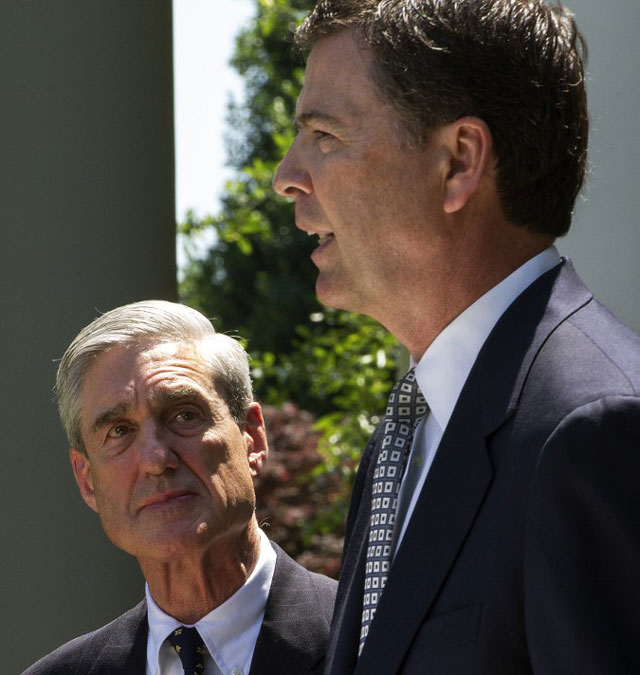
Washington, United States | AFP | Special counsels like the one named Wednesday to oversee the probe into Russia’s alleged election interference are rare super sleuths with more power and independence than regular American investigators.
This time it is former FBI director Robert Mueller who will take over the probe into the meddling as well as whether President Donald Trump’s campaign team colluded with Moscow to tilt the election his way. The stakes are huge.
Unlike a US attorney, a special counsel has more leeway in carrying out a probe.
They are appointed when an investigation by a US attorney would present a conflict of interest or “under the circumstances, it would be in the public interest to appoint an outside Special Counsel to assume responsibility for the matter,” says the law allowing for special counsels.
For instance, in 1999 Attorney General Janet Reno appointed Senator John Danforth to oversee a probe into the role of the FBI in a deadly assault in 1993 against the Branch Davidians sect in Waco, Texas.
A special counsel does not have to keep his or her superiors briefed on each step of the probe they are carrying out — even though the counsel does still answer to the Justice Department and thus, ultimately, to the president.
The attorney general or his or her deputy does not have to explain their criteria in choosing someone to be a special counsel, who can even come from outside government.
That is the case with Mueller, the former longtime FBI director who will resign from the law firm where he works to take on this job.
Mueller was named by deputy attorney general Rod Rosenstein, to whom he will report. Attorney General Jeff Sessions has recused himself from the Russia probe because he failed to state during his confirmation hearings that he had met with Russian officials.
A special counsel can issue subpoenas and ask for extra resources for a probe but must warn the attorney general or the deputy of important moves they plan to make in the investigation.
The attorney general can oppose a procedural act that the special counsel wants to make. And he or she can dismiss the counsel if they feel that individual has made a serious mistake or is in a situation of conflict of interest.
One of the best known special prosecutors was Archibald Cox, named to lead the Watergate investigation that led to Richard Nixon’s resignation in 1974.
Nixon wanted Cox fired after he issued subpoenas for copies of taped conversations Nixon made in the Oval Office.
Attorney General Elliot Richardson refused to fire Cox, and resigned. His deputy William Ruckelshaus did the same in what came to be known as the “Saturday Night Massacre.”
 The Independent Uganda: You get the Truth we Pay the Price
The Independent Uganda: You get the Truth we Pay the Price





